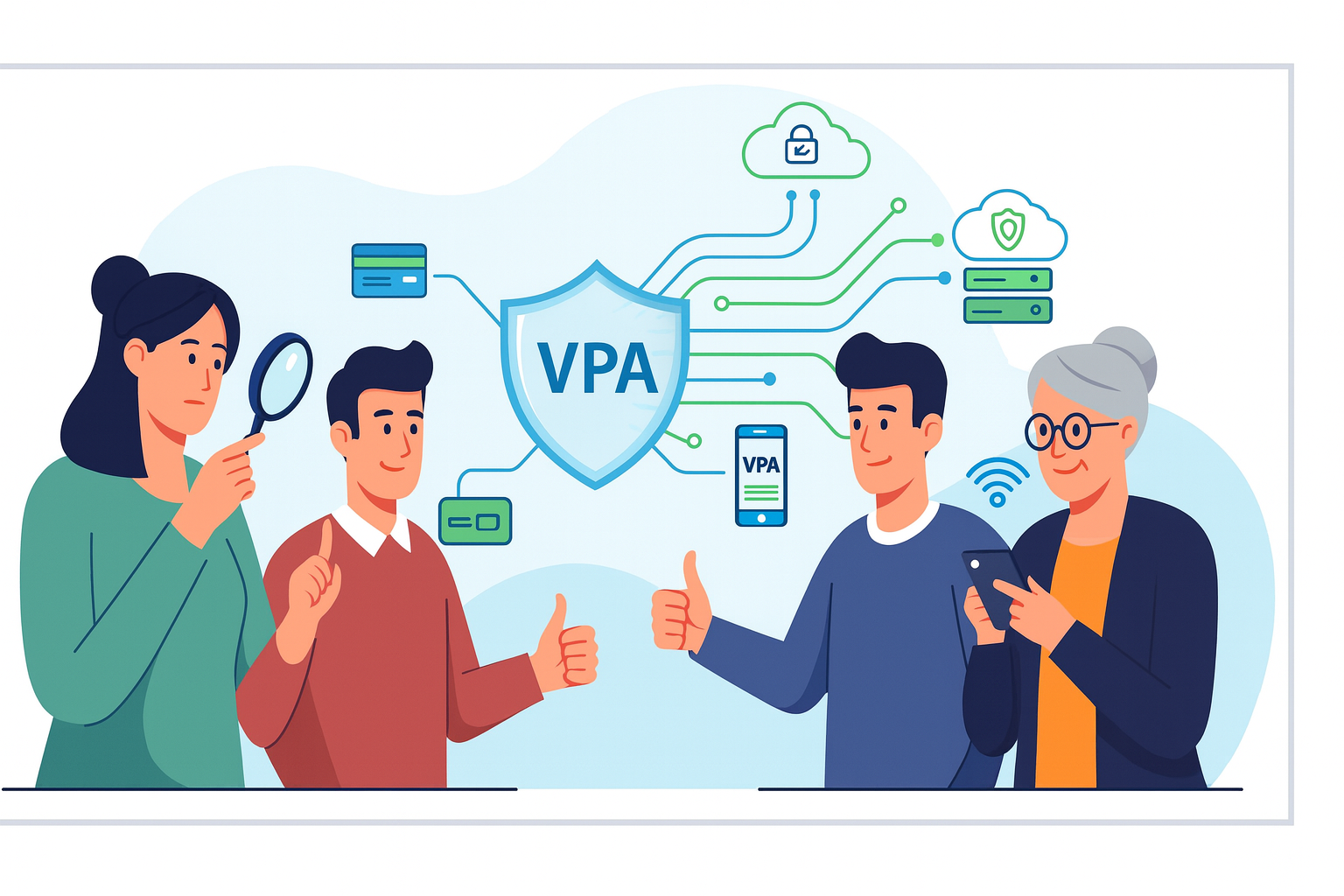A Virtual Payment Address (VPA) is one of the core elements that makes UPI both convenient and secure. Instead of sharing your bank account number or IFSC code, you simply provide a UPI ID—your VPA. But how safe is it really? Here’s a clear breakdown to help you understand its security and why millions rely on it.
What Is a Virtual Payment Address?
A Virtual Payment Address is a unique identifier you use to send or receive money through UPI. It looks something like name@upi.
It acts as a mask for your actual bank details, ensuring you never have to share sensitive account information with anyone.
Why a VPA Is Safe to Use
It Hides Your Bank Details
Your bank account number, IFSC, branch information, and other private data remain completely hidden. The sender only sees your VPA—nothing else.
Encrypted Transactions
UPI transactions use multi-layered encryption. This ensures that even if someone sees your VPA, they cannot access your bank details.
Two-Factor Authentication
Even if someone knows your VPA, they cannot debit money from your account.
Every payment requires:
- Approval in your UPI app
- Your UPI PIN
Without the PIN, no transaction can be completed.
No Balance Sharing
A VPA does not reveal your bank balance or transaction history. It is purely an identifier.
When Could a VPA Become Unsafe?
A VPA itself is safe, but users must stay alert. Risk arises only when:
- You approve unknown collect requests
- You share your UPI PIN with others
- You click phishing links disguised as payment links
The security of your VPA depends on safe usage habits.
Best Practices to Keep Your VPA Secure
Approve Requests Carefully
Only accept payment requests from people you trust.
Never Share Your UPI PIN
Your PIN is the real key to your account. Even customer support will never ask for it.
Verify Before Paying
Double-check VPAs before sending high-value payments.
Use Secure Networks
Avoid approving payments over public Wi-Fi or unsecured networks.
Why VPAs Are More Secure Than Traditional Payment Details
- No exposure of bank account numbers
- No sharing of IFSC or branch data
- Masked identity for every transaction
- Higher privacy compared to NEFT, RTGS, or IMPS where full details are shared



